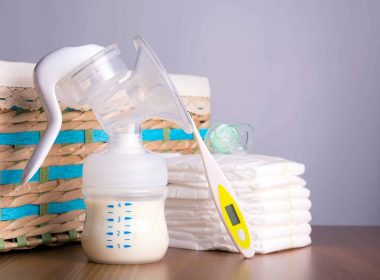Tongue Tie Myths – A Guide for Breastfeeding Mums
Breastfeeding is lovely and natural. It gives many benefits to both mother and baby. However, for some mothers, the journey can be hard. This is especially true if their baby is diagnosed with a tongue tie. Tongue tie is a condition where the frenulum is shorter than usual. The frenulum is the thin tissue connecting the tongue to the floor of the mouth. It can cause breastfeeding difficulties.
Unfortunately, misinformation and myths about tongue ties are common. They can leave mums confused and discouraged. In this blog post, we’ll disprove common misconceptions about tongue ties. We’ll also share useful tips for breastfeeding mums and how a lactation consultant can provide support.
Myth #1: All Tongue Ties Require Immediate Correction
One of the most frequent myths about tongue ties is that each one needs immediate fixing. This is done through a surgical procedure called frenotomy. Some severe cases may benefit from this surgery. But, not all need surgery. Every baby is different. A qualified healthcare professional should assess the severity of the tongue tie. Ideally, the professional should be a lactation consultant or pediatrician. They should be experienced in diagnosing and managing tongue tie issues. In many cases, simple steps can help. These include breastfeeding support, stretches, and exercises. They may be enough to improve breastfeeding latch and function.
Tip: Seek Professional Evaluation
If you suspect your baby has a tongue tie. Or, if breastfeeding is hard, ask a lactation consultant or doctor for help. They can diagnose accurately, they can also guide on the best ways to manage it.
Myth #2: Tongue Tie Only Affects Breastfeeding
Another common misconception is that a tongue tie only impacts breastfeeding. Breastfeeding problems are a big concern for babies with a tongue tie. But, the effects can go beyond feeding. Untreated tongue ties may cause speech and dental issues. It can even affect the baby’s ability to clean food from their mouth as they grow.
Tip: Consider Long-Term Implications
When discussing tongue tie treatment options with your doctor, consider the long-term effects. These go beyond breastfeeding. Breastfeeding is crucial for infant nutrition and bonding. But, fixing tongue ties early can also reduce future speech and dental problems.
Myth #3: Tongue tie Surgery is Always Painful and Risky
Some mums are hesitant to pursue surgery due to concerns about pain and potential risks. It’s natural to be worried. But, frenotomy is quick and safe. This is true when a skilled healthcare professional does it. In many cases, babies feel little pain. The benefits of better breastfeeding and oral function are greater than the risks.
Tip: Discuss Risks and Benefits with Your Healthcare Provider
If frenotomy is recommended for your baby, talk to your healthcare provider. Talk about your concerns and questions. They can give details about the procedure, risks, and outcomes. This will help you make an informed choice that fits your preferences and values.
Myth #4: Tongue Tie Will Resolve on Its Own
Some parents may hope that their baby’s tongue tie will resolve over time. Some mild cases of a tongue tie may improve as the baby grows. But, significant or symptomatic tongue ties usually require intervention. This is to address feeding difficulties and prevent long-term complications.
Tip: Take Action Promptly
If you suspect your baby has a tongue tie. And, you’re having trouble breastfeeding. Don’t wait to get help from a lactation consultant or healthcare provider. Early intervention can improve feeding outcomes associated with an untreated tongue tie.
Navigating tongue tie can overwhelm breastfeeding mums. But, with the help of a knowledgeable lactation consultant, you can separate fact from fiction. Then, you can make informed decisions about your baby’s care.
If you would like a one-on-one consultation, Katie Mugan, is available to provide breastfeeding support in Dublin, Kildare and Worldwide.
Seeking support from resources like Nursing Mama can provide valuable insights, offering breastfeeding support, knowledge, and expertise.







